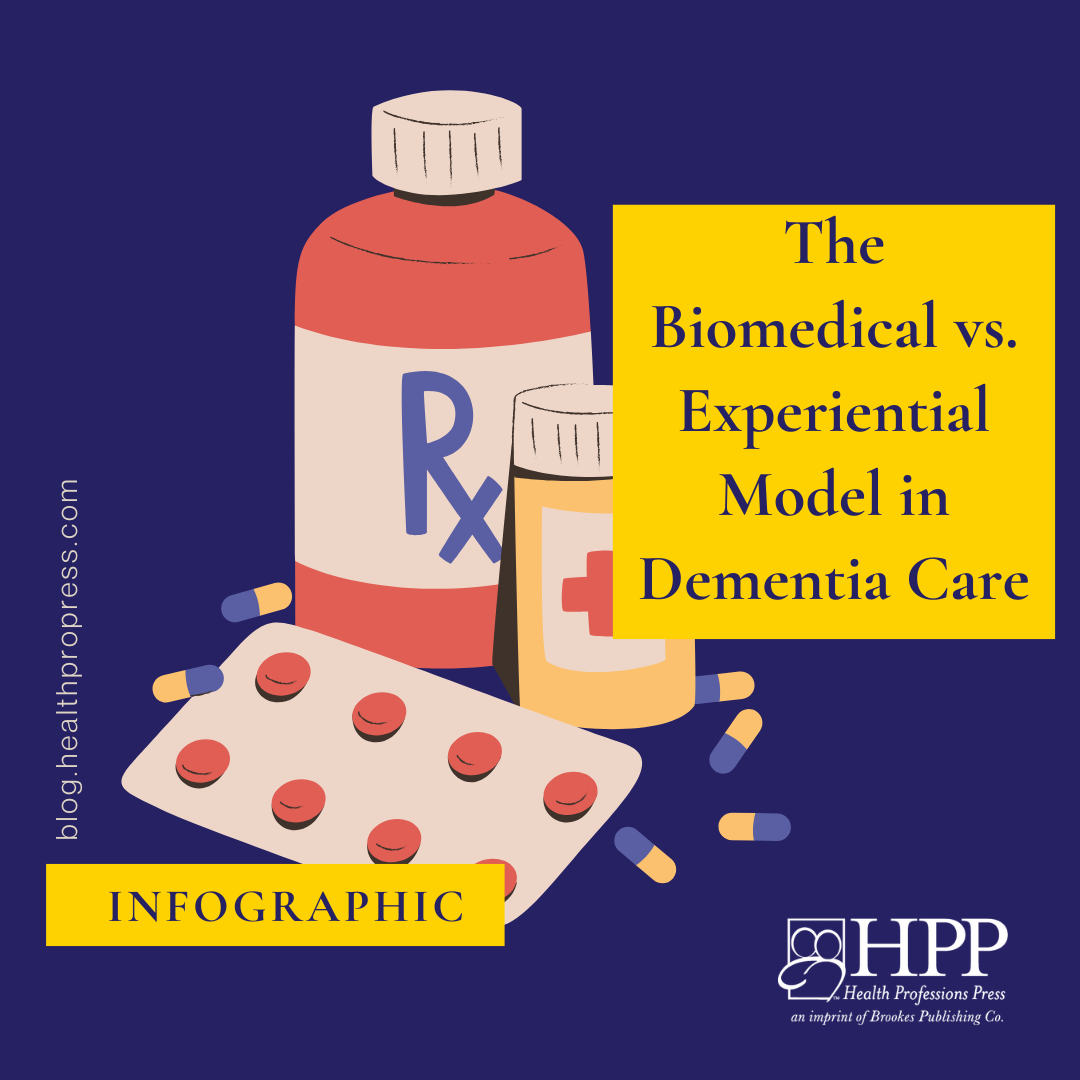
Category: dementia care

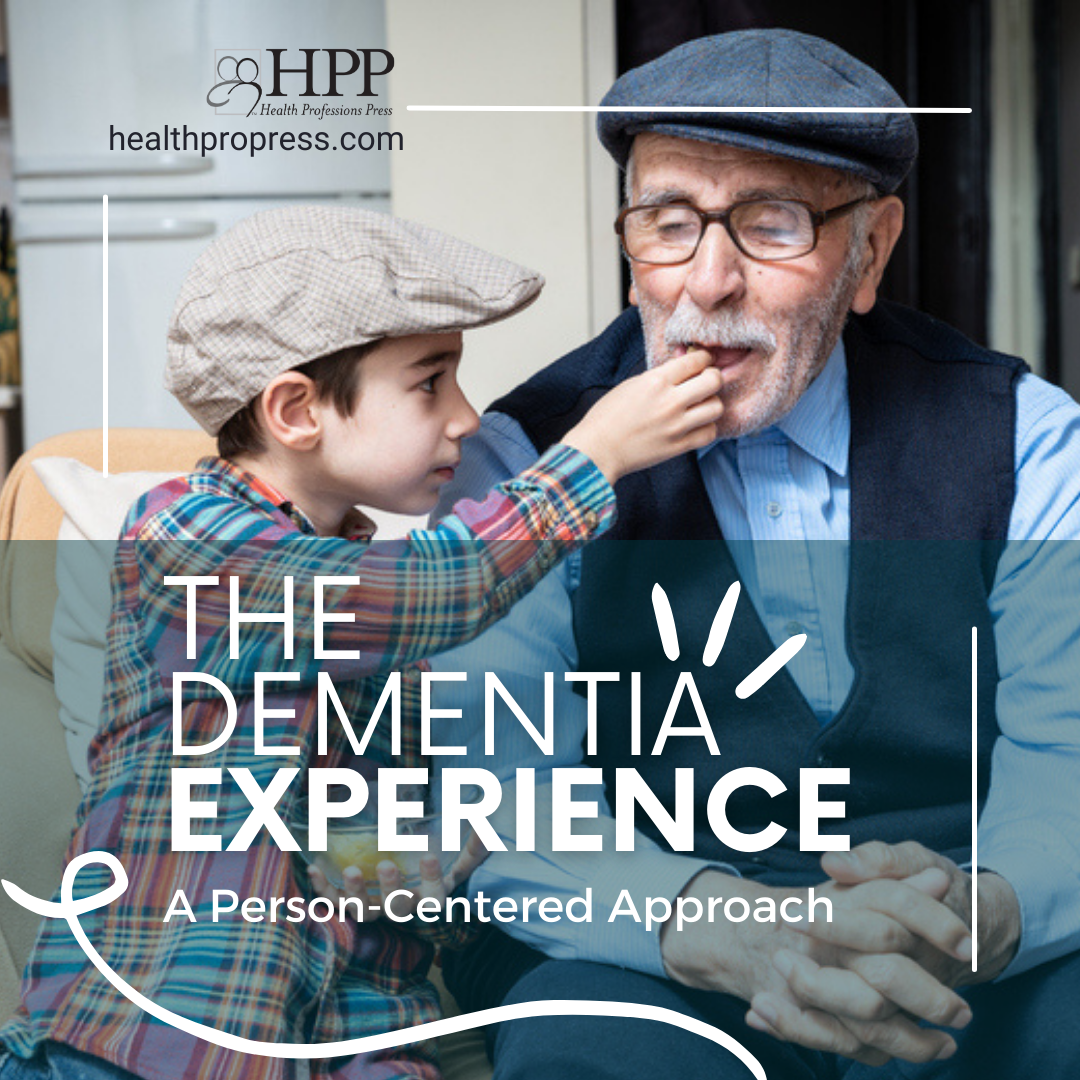
The Dementia Experience
The Experiential Model of Dementia Care The biomedical model (that is, a mindset of dementia that focuses only on physical and cognitive decline) sees dementia mostly as neuropathology. However, viewing only what can be easily observed and measured is inadequate to our needs. We must ask ourselves: how is dementia experienced by the person with the changing brain? That experience is more than simple structural and chemical defects; many other factors come into play, such as life history, relationships, ethnicity and culture, values, spirituality, interactions, and coping styles. Seeing dementia as a life experience and viewing the world through those…
READ MORE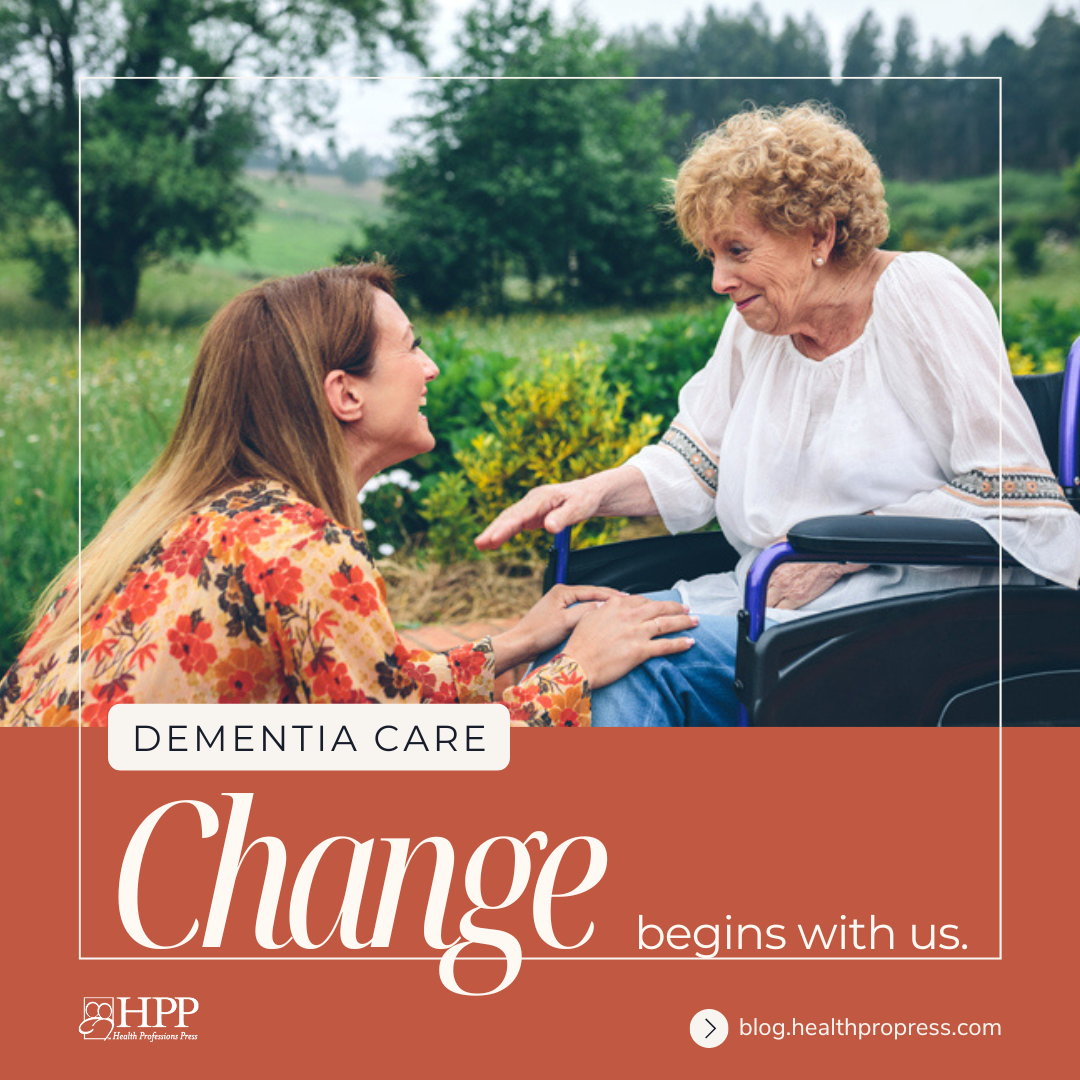
Dementia Care: Change Begins with Us
This post is adapted from Getting Dementia Care Right: What’s Not Working and How It Can Change by Anne Ellett, M.S.N., NP. Copyright © 2023 by Health Professions Press, an imprint of Paul H. Brookes Publishing Co., Inc. All rights reserved. Memory care is the fastest-growing area of senior living. Yet over the past many years, while there has been a proliferation of new attractive modern buildings, I have seen a lack of innovation and resources put toward staffing and education that would humanize and honor the human rights of residents with dementia. In the majority of residential care…
READ MORE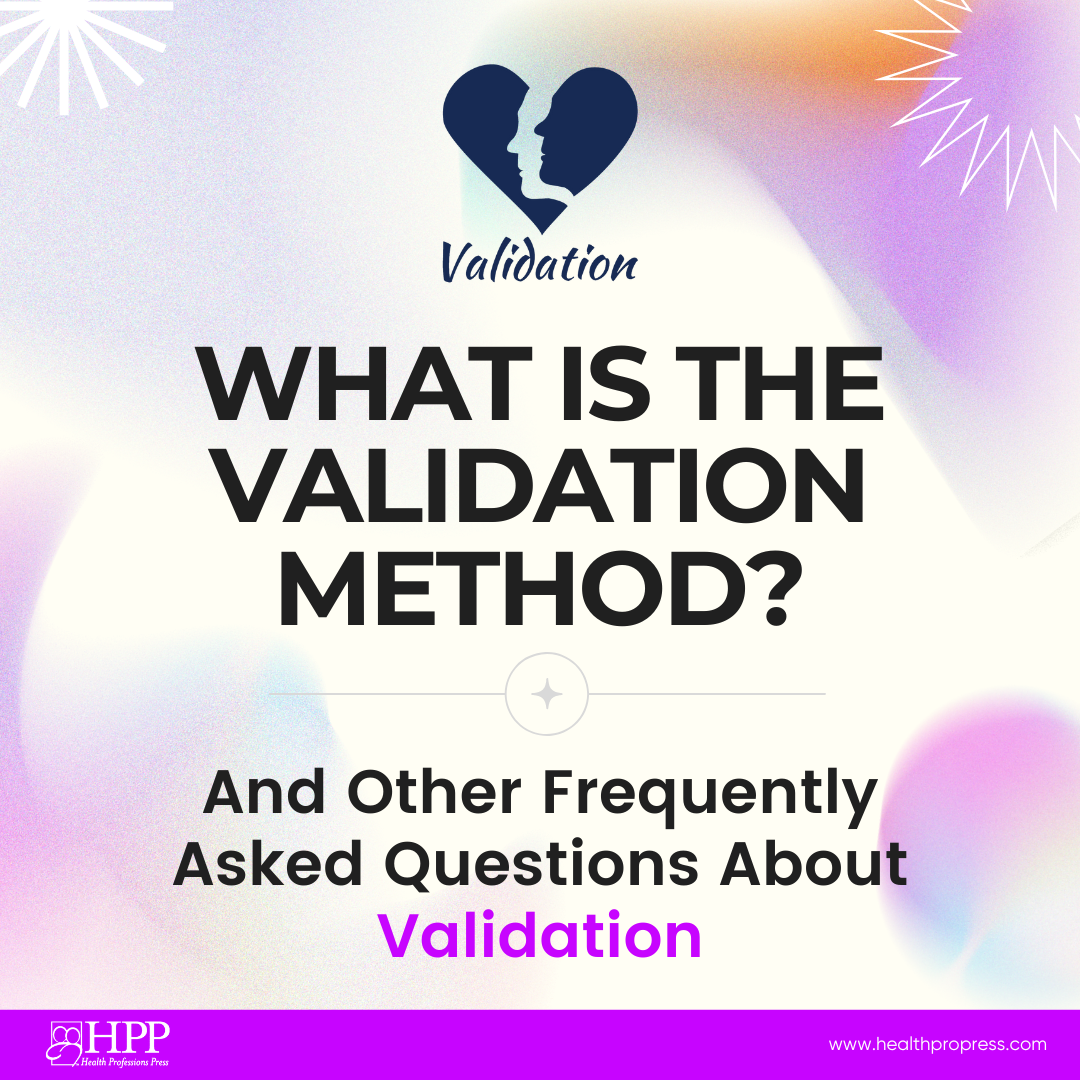
Validation FAQs
What is the Validation method? Validation is a method for communicating with older adults who are diagnosed as having Alzheimer’s disease and related dementias. It is based on an attitude of respect and empathy for older adults with Alzheimer’s-type dementia who are struggling to resolve unfinished business before they die. Validation suggests a way of classifying the behaviors of these disoriented older adults and offers simple, practical techniques that help them restore dignity and avoid deteriorating into a vegetative state. Caregivers practicing the Validation method become empathetic listeners, who do not judge the person, but accept their view of reality.
READ MORE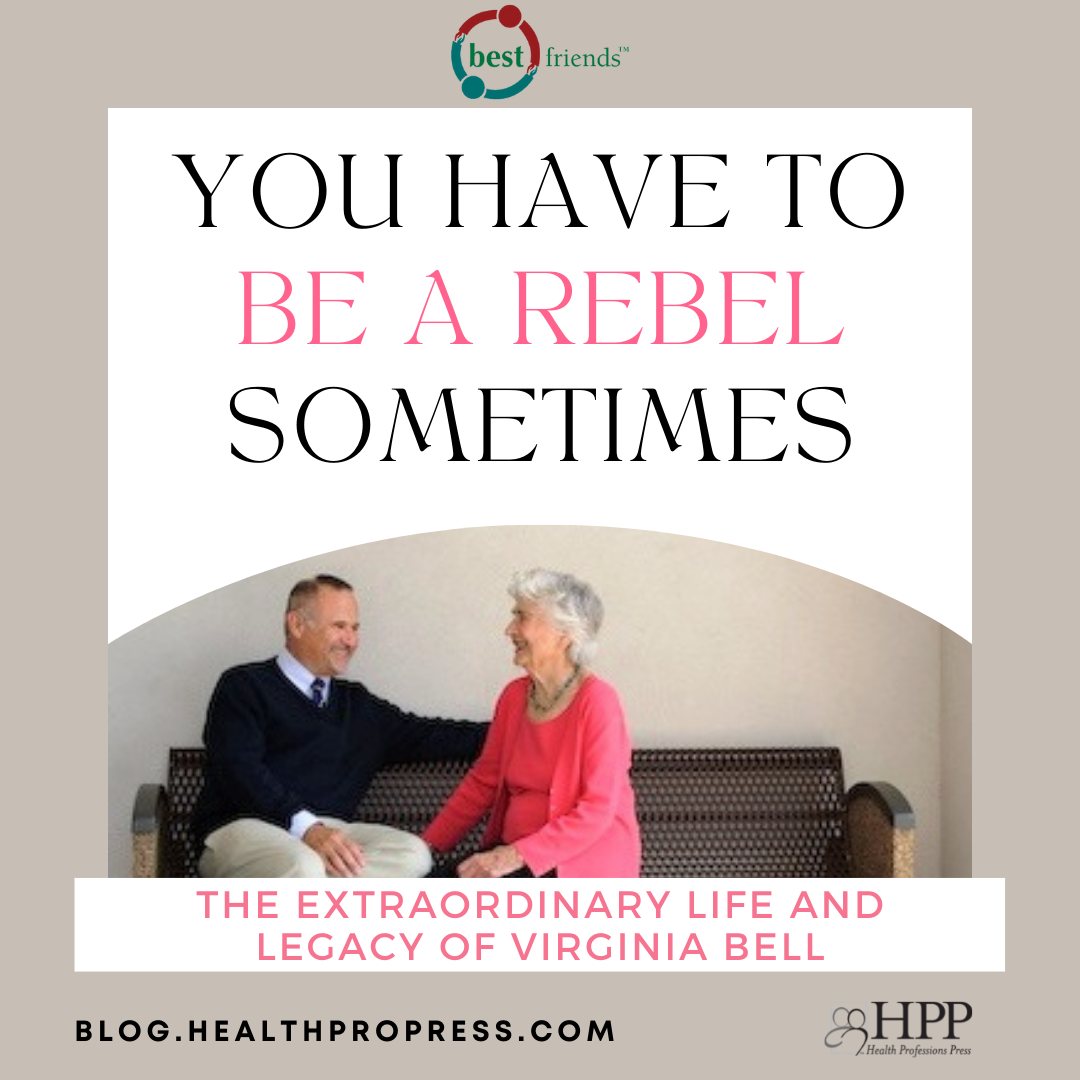
“You Have to Be a Rebel Sometimes”
On a hot summer morning in Baltimore in 2014, Virginia Bell, then 92, led a training on her groundbreaking approach to dementia care—one that stresses human dignity, gives the caregiver ideas for success, and inspires more hopeful, life-affirming attitudes. Standing in front of a packed class of attentive caregivers from all over the country, she shared her strategies for bringing about true, person-centered change in dementia care. She told them, “You have to be a rebel sometimes.” Believe it or not, the idea of person-centered care was a rebellious one when Virginia Bell co-founded the Best Friends Approach to dementia…
READ MORE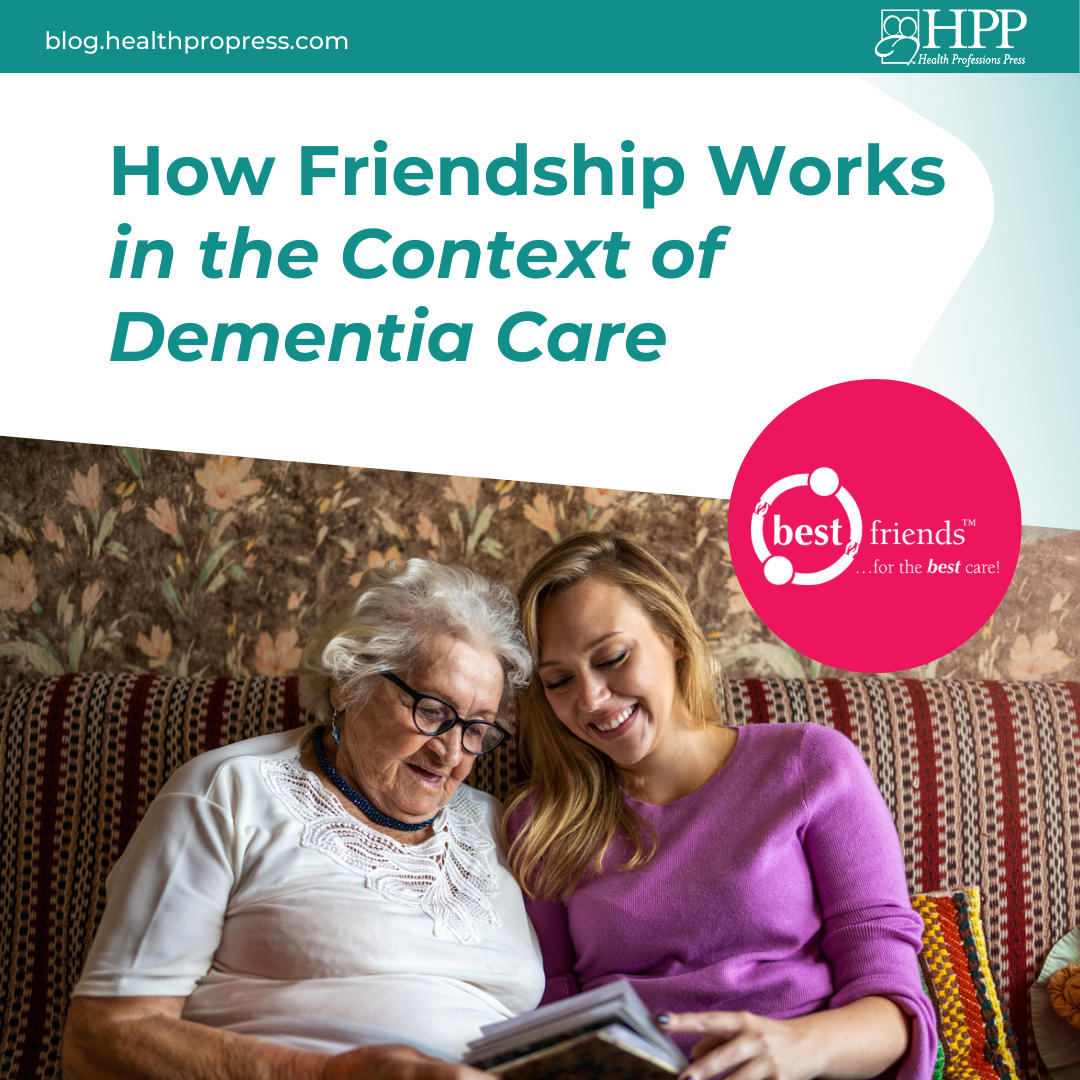
How Friendship Works in the Context of Dementia Care
If you are new to the field of dementia care, it might be confusing to think that an in-home client, day center participant, or resident can be a friend. Maybe you’ve been taught to address someone as Mrs. Smith instead of Anne. Maybe you are worried about boundaries. Why is it so important to think about the elements of friendship as you go to work every day with 40 people with dementia? The reason goes back to empathy. It’s easy for someone with dementia to get lost in confusion and feel disconnected from the flow of life. Without our intervention,…
READ MORE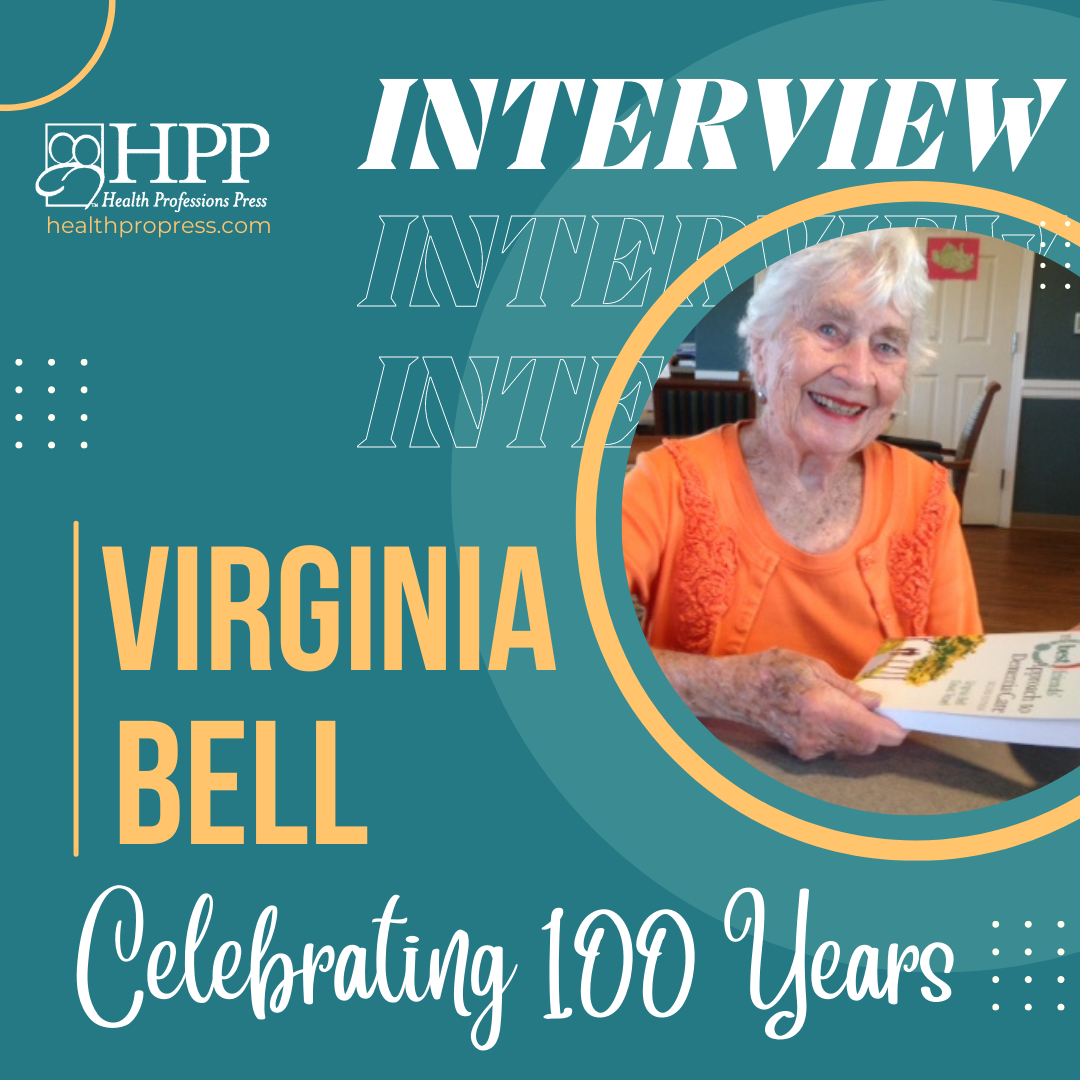
Celebrating 100 Years with Virginia Bell
June 30, 2022 marks the 100th birthday of Virginia Bell, one of the most influential thought leaders in the field of dementia care over the last four decades, who continues to this day to improve the lives of people with dementia and their caregivers. HPP sat down with the legendary author, speaker, and advocate to look back on 100 years and look forward towards the future of dementia care. What influenced you to start your career later in life? What motivated you to choose to work in dementia care? I received my undergraduate degree in math and chemistry but as…
READ MORE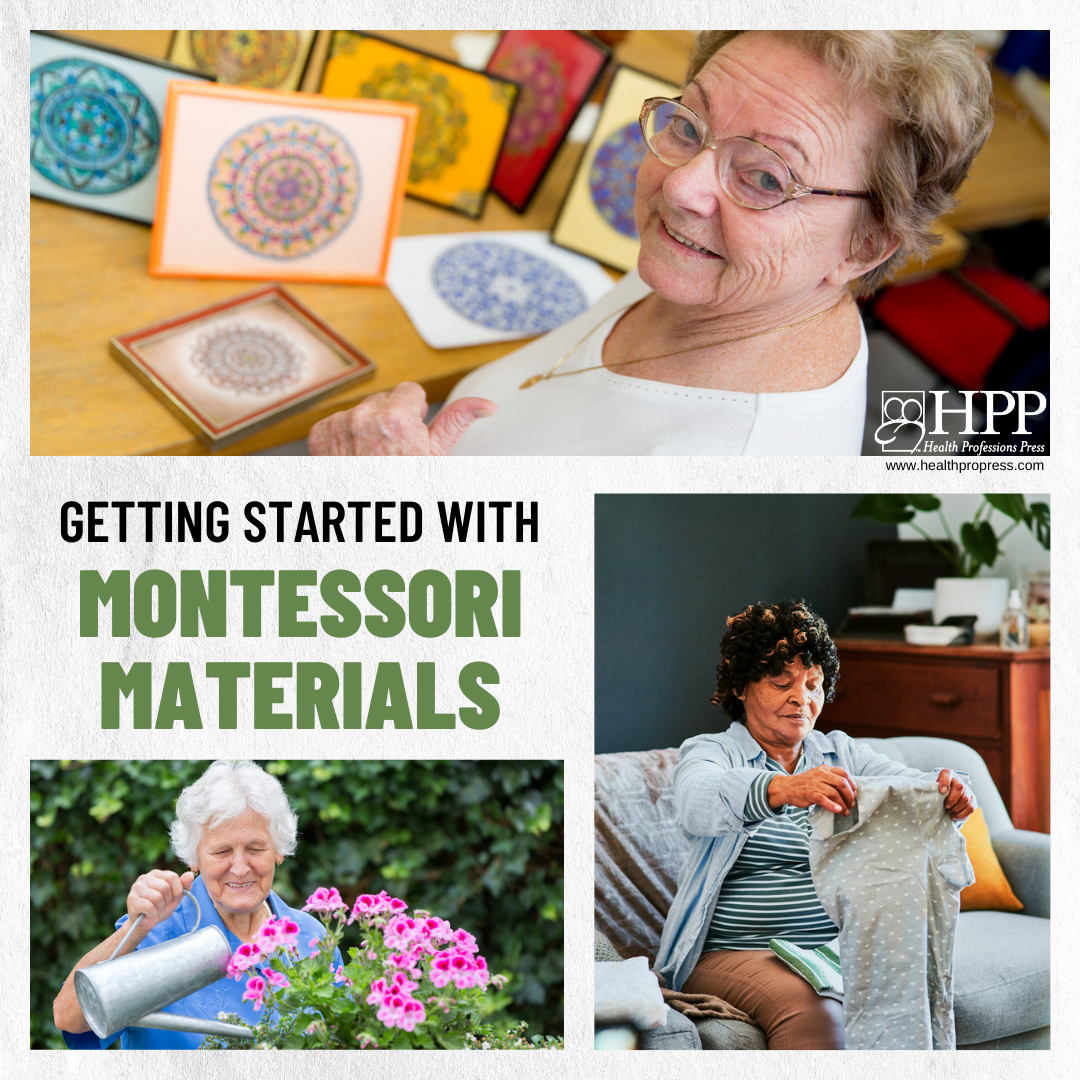
Getting Started with Montessori Materials in Elder Care
Dr. Montessori designed an array of hands-on materials for every area of the curriculum: Practical Life, Sensorial, Language, Math, Science, Geography, Culture, Art, and Music. Some of these materials can be used—or adapted for use—with elders. Whether using traditional materials or creating your own, these manipulatives share common characteristics: progression from the concrete to the abstract, a control of error, and isolation of difficulty. Characteristics of Montessori Materials Concrete to Abstract, Simple to Complex In the classroom, Montessori materials provide concrete representations of abstract concepts. For example, the decimal system is made physical with golden beads, parts of speech are…
READ MORE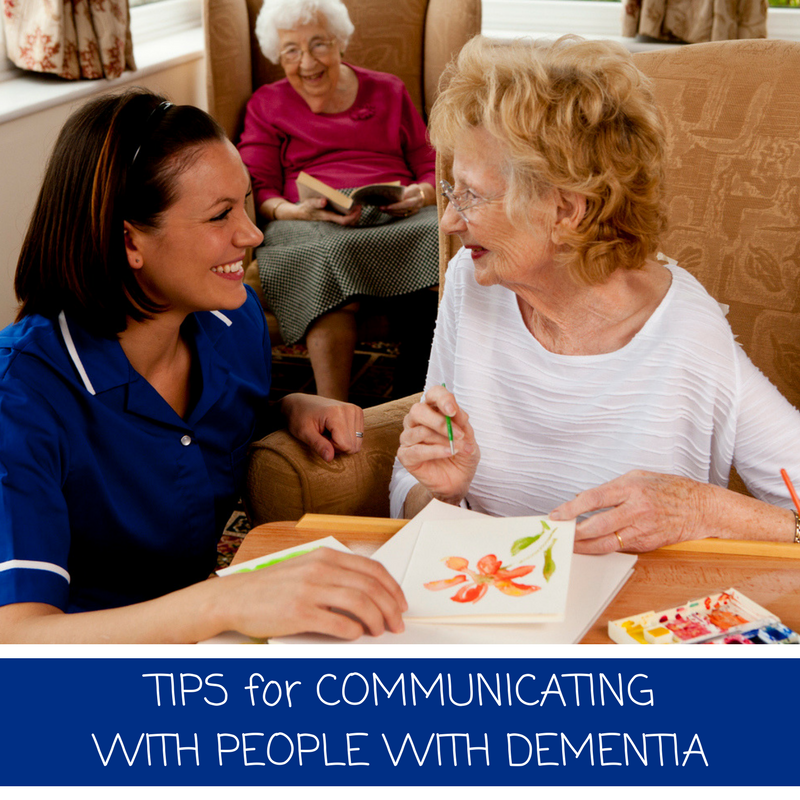
Tips for Communicating with People with Dementia
We communicate in some way with everyone around us all day. It is easy to think of communication as spoken words, but we also communicate with writing, signs, gestures, expressions, intonation, volume, colors, sounds, and even our clothing. Impaired or diminished memory, attention and concentration, perception and visuospatial functions, hearing, and visual acuity all make it difficult for people with dementia to communicate effectively. When communicating with a person with dementia, keep these tips in mind: Ask the person, “What would you like me to call you?” Always speak respectfully and use age-appropriate language when communicating with older adults with…
READ MORE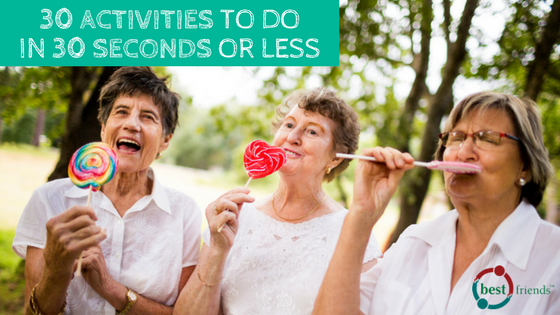
30 Activities to Do in 30 Seconds or Less
Planned activities do not happen all day long. Individuals with the ability to think through how to spend their time can initiate being with others or spending time alone. Persons with dementia often cannot do this. They need help—not only in structured activity—but also in relational interactions throughout the day. These 30 simple, unstructured interactions are not on the activity calendar, but they are probably the most important of the ways that we interact with persons with dementia. Greet the person by name Make eye contact and smile Shake hands Ask someone…
READ MORE